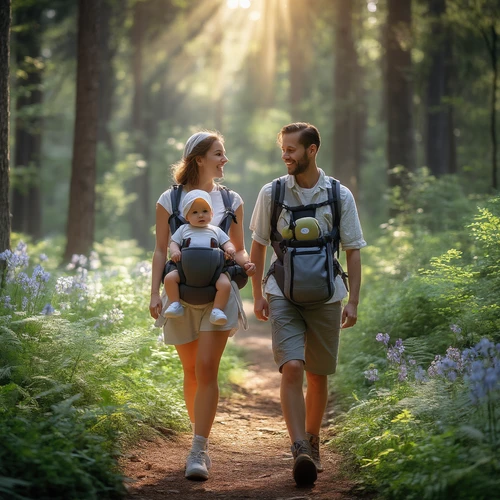Embarking on a hiking adventure with a baby can be an incredibly rewarding experience for both parents and their little ones. However, navigating the trails with an infant requires careful planning and preparation. Here are some essential tips to help you enjoy hiking with your baby safely and comfortably.
1. Choose Age-Appropriate Trails: Before setting out, consider your baby's age and stamina. For newborns and infants up to six months, opt for short, easy paths close to home. As your baby grows older (six months to a year), you can gradually increase the distance and difficulty of trails.
2. Select the Right Baby Carrier: Selecting a comfortable and secure carrier is crucial for both you and your little hiker. Look for carriers specifically designed for hiking that provide adequate support for your baby's back, hips, and neck. Ensure it has a chest strap to distribute weight evenly across your shoulders.
Important Tip: Avoid using infant car-seat-type carriers on your front as they don't offer the necessary ventilation and comfort on longer walks.
3. Pack the Essentials: When hiking with a baby, packing the right gear can make all the difference. Include items such as:
- Baby carrier
- Sun protection: Hat, sunglasses, and sunscreen for your little one (safe for babies over six months)
- Diapers and wet wipes
- Extra clothing, including a change of clothes for both you and your baby in case of spills or accidents
- Snacks and water bottles
- First-aid kit
- Bibs or burp cloths to deal with any unexpected mealtime accidents
- A change pad or soft mat for diaper changes (there might not always be a convenient surface)
4. Timing and Frequency: For most babies, the best times to go out on a hike are in the mornings or late afternoons when it's cooler. Newborns and young infants may find midday heat uncomfortable. Additionally, remember that babies generally need to move about or nurse more frequently than adults, so schedule your hiking pace around their needs.
5. Stay Alert: Hiking with a baby demands constant vigilance regarding potential hazards such as poisonous plants, exposure to insects, and terrain hazards. Pay close attention to any signs of discomfort or fatigue in both you and the baby.
By following these tips, you can ensure that your hiking outings will be enjoyable and safe for everyone involved. Now pack your gear, lace up those hiking boots, and embark on thrilling adventures with your little one in tow!


